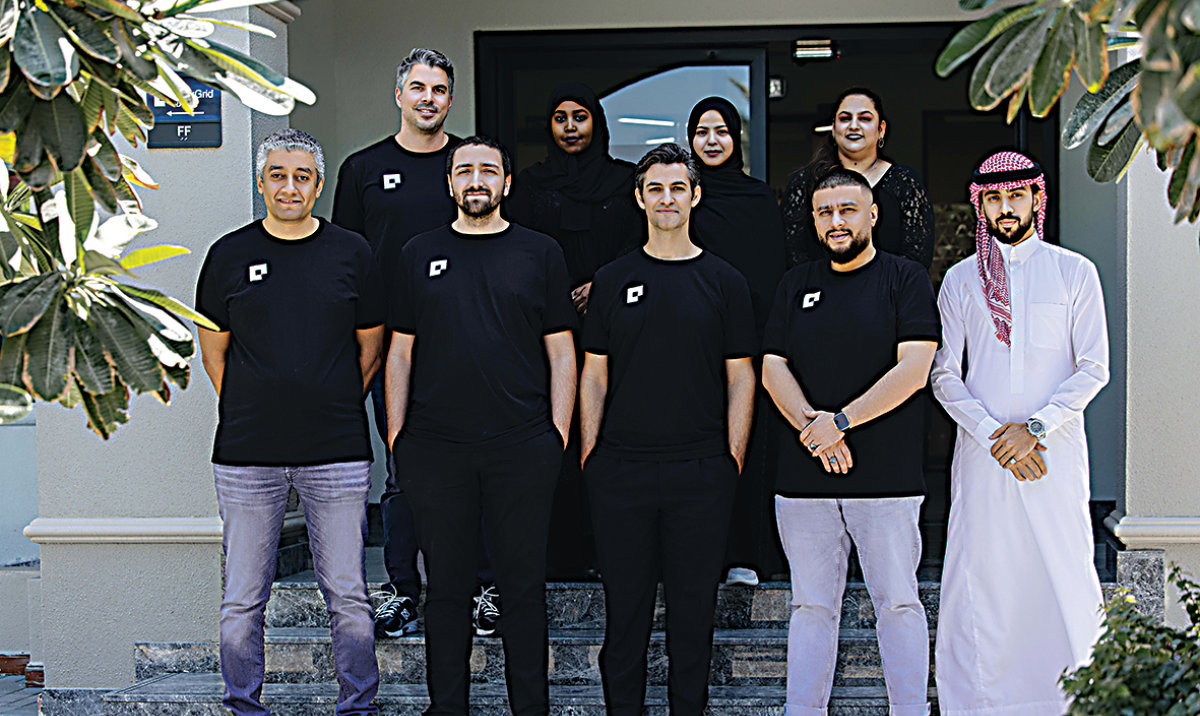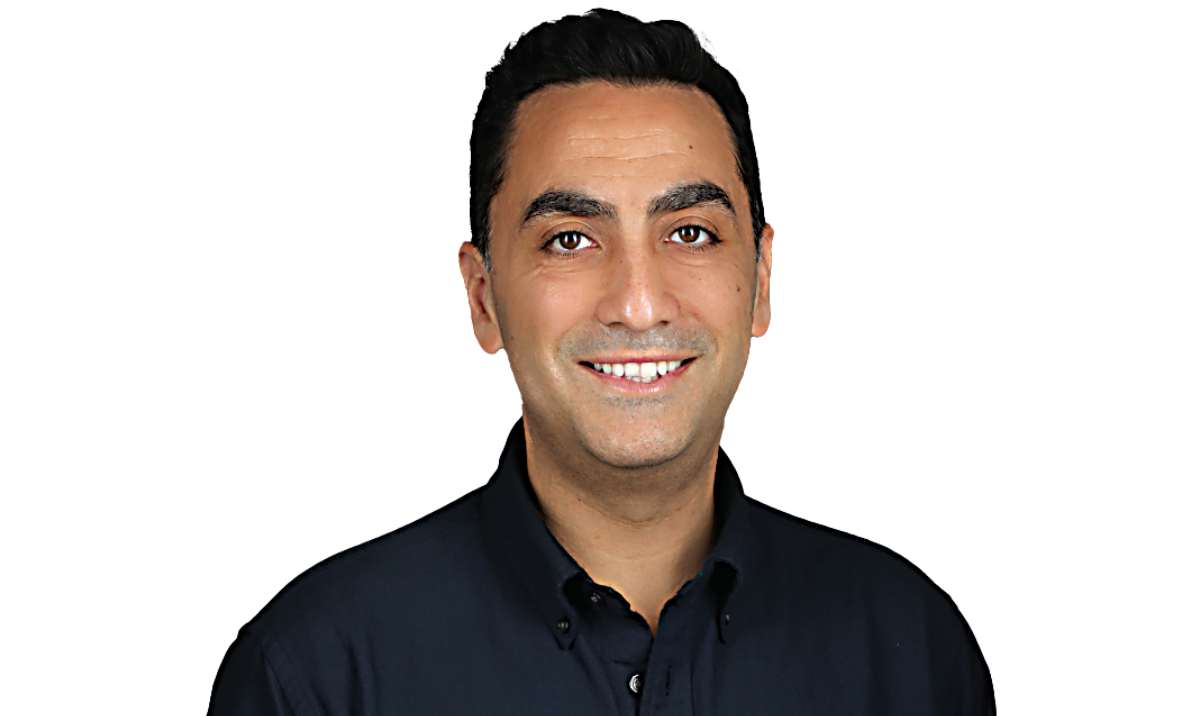RIYADH: Startups across the Middle East and North Africa region continue to attract investor interest, with fintech, gaming, and healthcare ventures securing significant funding rounds.
UAE-based fintech NymCard raised $33 million in a series B funding round led by QED Investors, with participation from Lunate, Dubai Future District Fund, and Mashreq Bank, as well as Knollwood, Reciprocal, and FJ Labs.
Endeavor, Shorooq Partners, and Oraseya Capital also took part. Founded in 2018 by Omar Onsi and Ayman Chalhoub, NymCard provides fintech companies with API-based solutions to integrate financial services into their applications.
The latest investment will enable the company to expand across more than 10 markets in the region and enhance its payment infrastructure to serve banks, enterprises, fintechs, and telecom providers.
“This investment is a testament to the strength of our technology and our commitment to enabling financial innovation in MENA,” Onsi, the CEO, said.

UAE-based fintech ClearGrid has emerged from stealth after securing $10 million in a dual pre-seed and seed funding round. (Supplied)
“With the backing of our investors, we will continue pushing the boundaries of payments and embedded finance, ensuring our clients have access to best-in-class payment infrastructure solutions backed up by solid program management capabilities,” he added.
This funding follows NymCard’s $22.5 million venture round in 2022, led by DisruptAD and Reciprocal Ventures.
ClearGrid emerges from stealth with $10 million funding
Another UAE-based fintech, ClearGrid, has emerged from stealth after securing $10 million in a dual pre-seed and seed funding round.
The pre-seed round of $3.5 million was co-led by Raed Ventures and Beco Capital, while the seed round of $6.5 million was co-led by Nuwa Capital and Raed Ventures.
Other institutional investors include Aramco’s Waed Ventures, KBW Ventures, and Sharaka, as well as 9yards Capital, Protagonist, and BYLD.
Eirad Holdings, Endeavor Catalyst, and Wamda Capital also put in funds.
Founded in 2023 by Khalid Al-Saud, Mohammad Al-Zaben, and Mohammad Al-Khalili, ClearGrid provides an AI-powered debt collection resolution platform for lenders.

This investment is a testament to the strength of our technology and our commitment to enabling financial innovation in MENA.
Omar Onsi, NymCard CEO
“Collections should be an extension of good lending — not an afterthought. At ClearGrid, we’re reimagining debt resolution from the ground up, giving lenders the intelligence and tools they need to recover capital effectively while creating better outcomes for borrowers,” Al-Zaben said. The startup aims to develop cutting-edge artificial intelligence and machine learning-driven collections systems, alongside a Software-as-a-Service platform that enhances early risk detection and credit orchestration.
“Financial systems must evolve with the digital world. Debt resolution should be a bridge to stability, not a roadblock. At ClearGrid, we’re redefining collections with a data-driven, technology-first approach that strengthens trust, ensuring credit fuels growth, not distress,” according to Al-Saud. “This is just the first step in building the infrastructure for the future of debt resolution,” he added.
The company plans to expand across MENA and beyond as it refines its offerings.
PlaysOut raises $7 million to grow mini-game ecosystem
In the gaming sector, PlaysOut, a UAE-based gametech startup, has secured $7 million in a seed funding round at a valuation of $70 million.
Investors in the round include OKX Ventures, KBW Ventures, and Pacific Century Group.
Founded in 2024 by Jassem Osseiran and Jimmie Jeremejev, PlaysOut provides a mini-games engine and SDK, enabling platforms to integrate a library of interactive mini-games.
The new capital will be directed toward expanding its mini-game ecosystem, securing strategic partnerships, and entering high-growth markets such as the US, MENA, and Asia.
ORO Labs raises $1.5 million for tokenized gold trading
UAE-based ORO Labs, a tokenized gold platform, has raised $1.5 million in a pre-seed funding round led by 468 Capital, with participation from Fasset and angel investors.
Founded in 2024 by Usman Saleem, ORO Labs offers users the ability to trade and use gold-backed assets seamlessly across financial markets.
The company plans to expand its product offerings and deepen its integrations across both decentralized and traditional finance ecosystems.
MENA Analytics secures funding for regional expansion
Palestine-based MENA Analytics, a platform that helps enterprises gather market insights through survey tools and data capture solutions, has secured undisclosed funding from Ibtikar Fund.
Founded in 2023 by Yousef Srouji, Obada Shtaya, Zayne Abudaka, and Mohammad Abu Qare, the company plans to use the new capital for expansion into Jordan and Saudi Arabia as it grows its research and analytics capabilities.
Juridoc.tn raises investment to expand AI-powered legal tech services
Tunisia-based Juridoc.tn, a regulatory technology startup specializing in AI-powered legal document automation, has raised an undisclosed investment round from Go Big Partners and 216 Capital Ventures.
Founded in 2019 by Assali Kais, Maya Boureghda Chebeane, and Anis Wahabi, Juridoc provides businesses with automated legal documentation and services.
The funding will support the company’s expansion into the OHADA region, which covers 17 West and Central African countries.
Grinta raises funding, acquires Citi Clinic for expansion into healthcare
Egypt-based Grinta, a pharmaceutical marketplace startup, has raised an undisclosed funding round from Beltone Venture Capital and Raed Ventures.
Founded in 2021 by Mohamed Azab, Yosra Badr, Ali Youssef, and Hamza Mohamed, Grinta enables pharmacies to access a traceable supply of pharmaceutical and medical products from multiple vendors, while also offering fulfillment, demand planning, and inventory financing solutions.
The company has also announced the acquisition of Citi Clinic, an Egypt-based primary healthcare service chain that serves more than 150,000 patients.
The acquisition marks Grinta’s pivot from a business-to-business marketplace to a hybrid model integrating direct patient care, as well as its planned expansion into East Africa.
Fawry and Contact Financial partner to enhance BNPL and fintech services
Egypt’s leading fintech company Fawry has signed a strategic agreement with Contact Financial Holding, one of the country’s top non-banking financial services providers.
The deal aims to integrate Contact’s buy now, pay later service into Fawry’s extensive payment network, which includes more than 370,000 point-of-sale terminals and an online platform.
Through this partnership, Contact’s customers will gain access to Fawry’s digital payment solutions, enabling convenient installment-based purchases. Beyond BNPL, the collaboration will also cover electronic payment solutions, bill collection, and other fintech services.
The initiative aligns with Egypt’s broader digital transformation strategy, which seeks to reduce reliance on cash transactions and drive financial inclusion.
Yango Group launches $20 milliomn venture fund
Yango Group, a global tech company focused on bringing advanced technology to local communities, has launched Yango Ventures, a corporate venture fund aimed at supporting early-stage startups across Latin America, Sub-Saharan Africa, MENAP, and other high-growth regions.
With an initial fund of $20 million, Yango Ventures will invest in seed to series B startups operating in the online-to-offline, B2B SaaS, and fintech sectors.
The fund is designed for scalability, with plans to expand its capital base in the future as entrepreneurial ecosystems in these markets continue to develop.
Beyond capital, Yango Ventures will leverage Yango Group’s industry expertise, network, and operational resources to help startups scale effectively and create sustainable impact within their communities.
By focusing on markets where Yango already has a strong presence, the fund aims to foster technological innovation, digitalization, and economic growth.





















